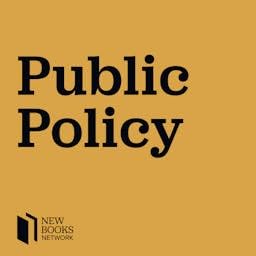The world’s largest public works investment visible from space, the Interstate Highway System and the hundreds of thousands of miles of supporting roadways, are frequently hailed as a marvel and triumph of engineering. President Eisenhower’s 1956 Interstate Highway Act is often praised as a model of successful bipartisanship. Today, the extensive damage wreaked by the creation of the highway system and the ills of car dependency are more widely acknowledged. Congestion and traffic deaths remain endemic despite nearly three-quarters a century of public policies and trillions of dollars spent with a primary stated goal of reducing congestion and improving traffic safety. The financing, governance, and construction models established by the 1956 act continue to influence what gets built today. In Overbuilt: The High Costs and Low Rewards of US Highway Construction (Island Press, 2025), transportation planning expert Dr. Erick Guerra describes how the US roadway system became overbuilt, how public policy continues to encourage overbuilding, what the scale and consequences of overbuilding are, and how we can rethink our approach to highway building in the US. Guerra explains that the national propensity to build roadways is no longer official or intentional policy. Instead, overbuilding stems from the institutions, finance mechanisms, and evaluation metrics developed in the first half of the twentieth century. While more funds are set aside for transit, walking, biking, and beautification, the investment paradigm has not changed. Planners and engineers have not adjusted the tools they use to determine which roads should be built, rebuilt, or widened and why. The country has added more lanes of urban Interstate since declaring the Interstate system complete than prior to it. Despite having too much roadway, the country is still operating in construction mode, using the same basic approach used to finance and build the interstate system quickly, Dr. Guerra states. The interstate was completed more than three decades ago. Overbuilt argues convincingly that it is time to move on. This interview was conducted by Dr. Miranda Melcher whose book focuses on post-conflict military integration, understanding treaty negotiation and implementation in civil war contexts, with qualitative analysis of the Angolan and Mozambican civil wars. You can find Miranda’s interviews on New Books with Miranda Melcher, wherever you get your podcasts. Learn more about your ad choices. Visit megaphone.fm/adchoices Support our show by becoming a premium member! https://newbooksnetwork.supportingcast.fm/public-policy
Más
Menos
 50 m
50 m Feb 20 202637 m
Feb 20 202637 m 1 h y 1 m
1 h y 1 m Feb 14 202646 m
Feb 14 202646 m 30 m
30 m 54 m
54 m 56 m
56 m

